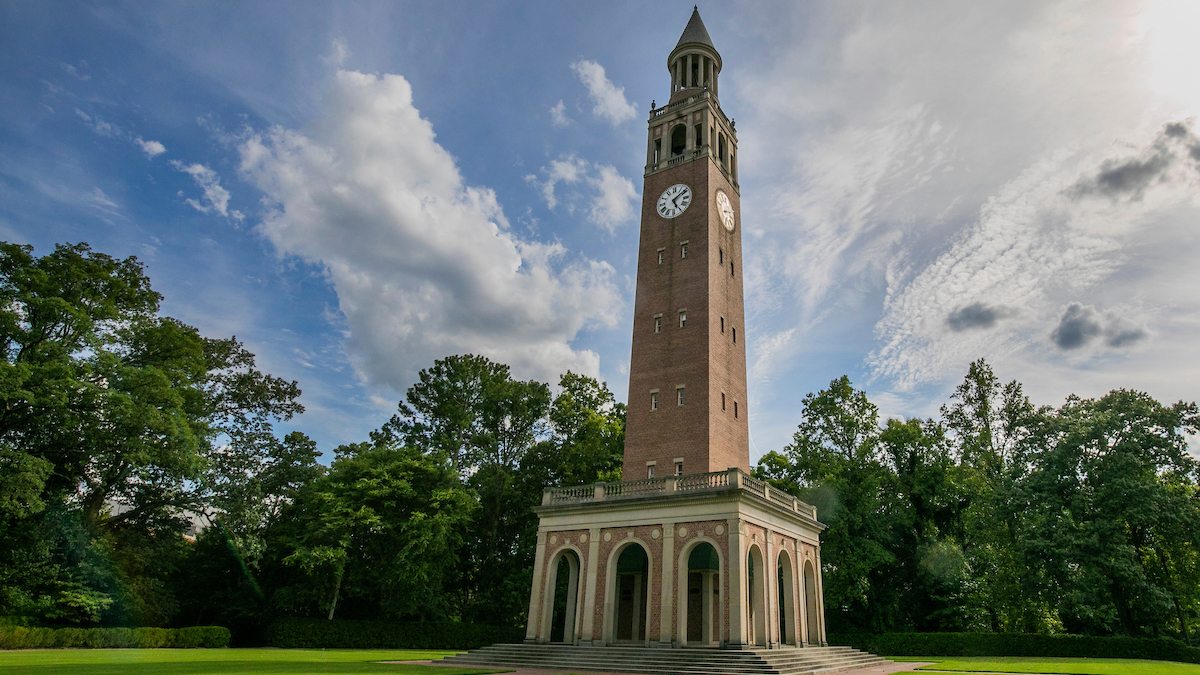Message from University leaders on important changes for Fall 2020 Roadmap
Effective Aug. 19, all undergraduate in-person instruction will shift to remote learning. The University will, again, open the opportunity for fall 2020 residence hall cancellation requests with no penalty.

Dear Carolina Community,
Just two weeks ago, we began the process of welcoming students back into our residence halls; just one week ago, we held our first day of class. We knew this would be a Carolina fall like no other, and with our residence halls at less than 60% capacity and less than 30% of our total classroom seats taught in-person, we certainly began with a very different feel.
In just the past week (Aug. 10-16), we have seen COVID-19 positivity rate rise from 2.8% to 13.6% at Campus Health. As of this morning, we have tested 954 students and have 177 in isolation and 349 in quarantine, both on and off campus. So far, we have been fortunate that most students who have tested positive have demonstrated mild symptoms.
Given the number of positive cases, we are making two important changes to de-densify our campus.
Effective Wednesday, Aug. 19, all undergraduate in-person instruction will shift to remote learning. Courses in our graduate, professional and health affairs schools will continue to be taught as they are, or as directed by the schools. Academic advising and academic support services will be available online. Our research enterprise will remain unchanged.
Due to this announcement as well as the reduction of campus activities, we expect the majority of our current undergraduate residential students to change their residential plans for the fall. We are working to identify additional effective ways to further achieve de-densification of our residential halls and our campus facilities. We will, again, open the opportunity for fall 2020 residence hall cancellation requests with no penalty. Carolina Housing will notify our residents with additional information and changes in the coming days. Residents who have hardships, such as lack of access to reliable internet access), international students or student-athletes will have the option to remain.
Since launching the Roadmap for Fall 2020, we have emphasized that if we were faced with the need to change plans – take an off-ramp – we would not hesitate to do so, but we have not taken this decision lightly. We have made it in consultation with state and local health officials, Carolina’s infectious disease experts, and the UNC System. President Peter Hans told us:
“There are no easy answers as the nation navigates through the pandemic. At this point, we haven’t received any information that would lead to similar modifications at any of our other universities. Whether at Chapel Hill or another institution, students must continue to wear facial coverings and maintain social distancing, as their personal responsibility, particularly in off-campus settings, is critical to the success of this semester and to protect public health.”
We know that these trends aren’t just affecting our campus: they have escalated the concerns of our neighbors, co-workers and friends in and around the Chapel Hill and Carrboro communities. The health and well-being of the good people of our greater Carolina community are just as important to us as that of our students, faculty and staff. We will continue to work closely with our local town/gown partners to create a stronger framework of adherence to our Community Standards among our off-campus students, coupled with education and enforcement of appropriate local ordinances.
We are asking, again, for everyone in our community to adhere to the Community Standards. For your own personal well-being, as well as the health and safety of everyone around you, it especially important that everyone adhere to state and local orders prohibiting mass gatherings, defined by 25 or more people outdoors and 10 or more people indoors.
We understand the concern and frustrations these changes will raise with many students and parents. As much as we believe we have worked diligently to help create a healthy and safe campus living and learning environment, we believe the current data presents an untenable situation. As we have always said, the health and safety of our campus community are paramount, and we will continue to modify and adapt our plan when necessary.
Kevin M. Guskiewicz
Chancellor
Robert A. Blouin
Executive Vice Chancellor, Provost




